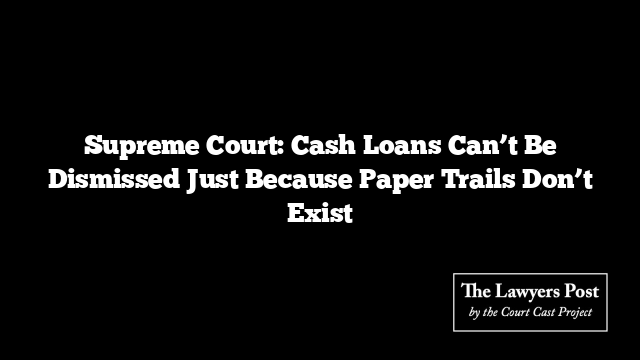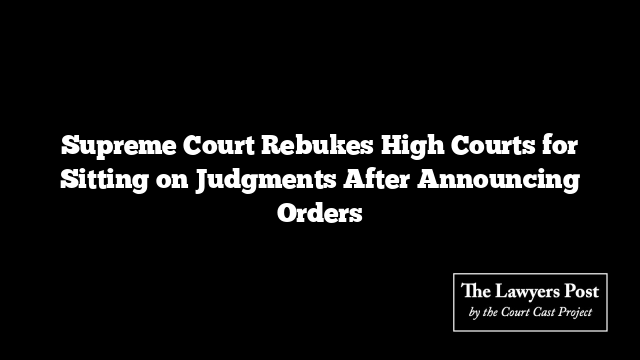In a ruling that redefines how courts should treat informal financial dealings, the Supreme Court has held that the absence of bank records does not automatically make cash transactions fictitious—especially when a promissory note acknowledges the full debt.
The judgment overturned a Kerala High Court decision that had whittled down a loan claim from ₹30.8 lakh to ₹22 lakh, ignoring the ₹8.8 lakh given in cash. The High Court had treated only the bank-transferred amount as proven, despite the borrower’s written admission of receiving the larger sum.
The bench of Justices Ahsanuddin Amanullah and Vipul M. Pancholi was unambiguous: once the authenticity of a promissory note is admitted, the presumption of debt covers the entire amount mentioned in it. Splitting it into “proven” and “unproven” parts, as the High Court had done, was termed legally unsustainable.
The Court emphasized that oral testimony and promissory notes carry weight in civil disputes. It reminded that the Negotiable Instruments Act creates a presumption of enforceable debt, placing the burden on the borrower to disprove receipt—not on the lender to produce bank slips or receipts for every rupee.
In words that reflect everyday realities, the Court noted that cash components in money dealings are common. Just because a lender cannot wave around a receipt does not mean the money never changed hands. “A person who gives cash obviously would not be having any documentary proof per se,” the bench remarked, adding that the High Court’s artificial bifurcation of the loan was “clearly erroneous.”
With this, the appeal was allowed, reinstating the full loan amount of ₹30.8 lakh acknowledged in the promissory note.




